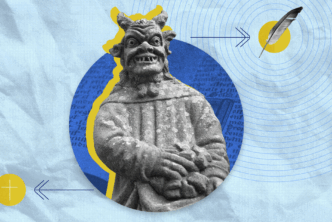Christians around the world will reflect on the death and resurrection of Jesus Christ this Easter weekend. In The Reconciling Wisdom of God, Adam Johnson explores the meaning of Jesus’ death and resurrection in light of God’s wisdom, rather than an act of justice. In this excerpt, Johnson reveals how this shift in perspective expands our understanding of Christ’s atonement.
The primary power and efficiency of Christ’s atonement do not lie in his death, for death is but an “uncouth hideous thing.” Rather, the power and efficiency of Christ’s atonement lie in his resurrection. On this side of the resurrection, death has a new countenance, a new hue. Color has been put in his face, and he has become a friend, full of favor and grace.
As Paul tells us in 1 Corinthians 15, if Christ were still dead we would be in our sins (1 Cor 15:17). But through his resurrection he has brought about the firstfruits of his work, which is the resurrection of all and the putting of all things under his feet, so that God may be all in all (1 Cor 15:20–28). If there is no resurrection, then Christ has not been raised. And if Christ has not been raised, our preaching and faith are useless and futile; we are false witnesses, and most pitiable (1 Cor 15:13–19). While the language of folly does not appear in this passage, it is “in the water.” Folly is useless, and the striving of the fool is futile; they lack the effectiveness of wisdom. The fool is pitiable and bears false witness. (Bear in mind the correlation of fools and false witnesses throughout Proverbs.) In short, if Christ has not been raised, we are fools who are still in our sins. The wisdom of God is not the way of the cross! It is the way of the resurrection through the cross.
We again find ourselves in the domain of wisdom in Paul’s letter to the Philippians:
But whatever were gains to me I now consider loss for the sake of Christ. What is more, I consider everything a loss because of the surpassing worth of knowing Christ Jesus my Lord, for whose sake I have lost all things. … I want to know Christ—yes, to know the power of his resurrection and participation in his sufferings, becoming like him in his death, and so, somehow, attaining to the resurrection from the dead (Phil 3:7–8, 10–11 NIV).
This is wisdom language, because it is by wisdom that we reprioritize our understanding of gains (Prov 11:28; 22:1). And wisdom and power go hand in hand; they have their meaning only in and through each other as mutually complementary descriptions of the activity of the triune God (Job 12:13; Dan 2:20; Matt 13:54; 1 Cor 1:24). The wisdom of God that is on display in the crucifixion is also found in the power of the resurrection; this above all is the end and goal of God’s work in Christ—his work by, of, and for wisdom.
The resurrection is the vindication of God’s purposes, the work of his wisdom effectively bringing creation to fulfillment by means of his own activity in human flesh. The resurrection is the firstfruit of the new creation, and Christ is the firstborn of the dead (Col 1:18). This is the beginning, the remaking of creation—and this time things are the way that they were meant to be. The resurrection of Jesus is the triumph of God, the work in which all things are, are being, and will be made right. The resurrection is the goal and fulfillment of Christ’s atoning work, the act of recreation by the Creator, the finale to the great undoing and destruction of fallen creation in the crucifixion of Jesus.
* * *
The Reconciling Wisdom of God genuinely reframes the debate around the atonement in terms of God’s wisdom, making it a vital contribution to this essential debate.





